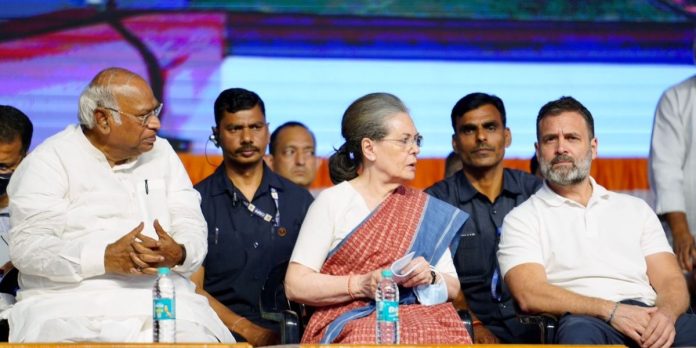Dm Monitoring
New Delhi: The Congress on Wednesday (January 10) said that it has declined the invitation to the inauguration ceremony being planned for the Ayodhya Ram Temple, saying it is “clearly an RSS/BJP event”.
The party said its leaders – party chief Mallikarjun Kharge, his predecessor Sonia Gandhi and the party’s Lok Sabha leader Adhir Ranjan Chowdhury – who received the invitation, have declined.
“Religion is a personal matter. But the RSS/BJP have long made a political project of the temple in Ayodhya. The inauguration of the incomplete temple by the leaders of the BJP and the RSS has been obviously brought forward for electoral gain,” read a statement from senior party leader Jairam Ramesh.
“While abiding by the 2019 Supreme Court judgment and honouring the sentiments of millions who revere Lord Ram, Shri Mallikarjun Kharge, Smt. Sonia Gandhi and Shri Adhir Ranjan Chowdhury have respectfully declined the invitation to what is clearly an RSS/BJP event,” read the statement.
Earlier, On January 22, just months before a general election, the Bharatiya Janata Party is going back to the holy town of Ayodhya in Uttar Pradesh. In doing so, it is sewing together politics and religion with impunity.
Meanwhile, opposition parties are still deciding as to whether to attend the BJP’s ceremony, which is clearly designed to give pole position to the prime minister and the party. They would do well to recall how religion has been used since the 1990s by the BJP to register significant electoral progress.
Latching on to a runaway rath has never helped the opposition. Crafting and standing by an alternate and confident theme, on the other hand, has.
After the 1991 general elections, the BJP became the second largest entity in the Lok Sabha. This was an impressive upward curve for the party, considering the fact that in 1984 when it had contested the parliamentary elections for the first time, it could grab only two seats. This was, of course, much less than what the BJP’s predecessor, the Jana Sangh had got before it became the Janata Party.
In the 1991 general elections, the BJP could not only reap a rich electoral harvest in Uttar Pradesh which has the country’s largest number of Lok Sabha seats, but the party also saw its vote share shoot up in different parts of the country, including southern India. From 7.4% in 1984, and 11.4% in 1989, it surged to 20.1% in 1991, which eventually cleared the path for the Hindutva party to become the single largest in the next general elections in 1996.
A year later, in 1997, the party could return to power in Uttar Pradesh.
This was followed by it winning more seats in the assemblies of some other Hindi heartland states.




